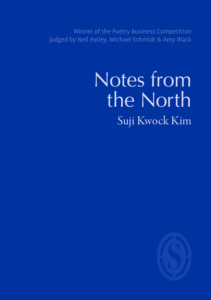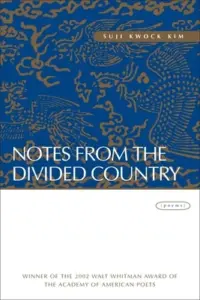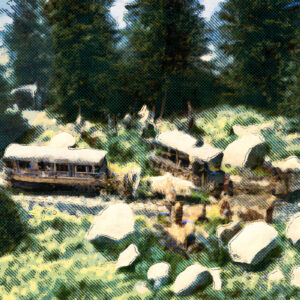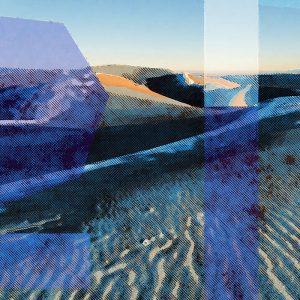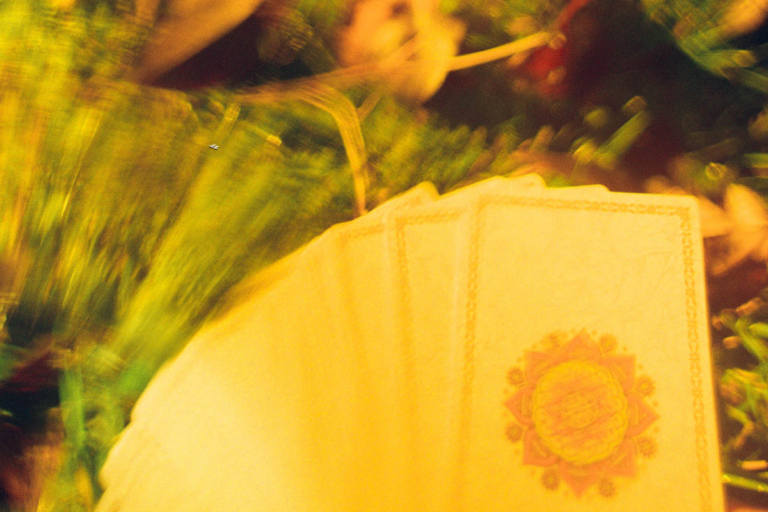Suji Kwock Kim
Search Engine: Notes from the North Korean-Chinese-Russian Border
While disputes over contested lands result in damage that can be seen and documented, they also create countless unseen ruptures in the hearts, minds and souls of the humans caught in the chaos. By giving voice to yearning, Suji Kwock Kim’s poem “Search Engine: Notes from the North Korean-Chinese-Russian Border” shows how bearing witness and asking the impossible are acts of profound courage, creativity, and defiance.
We’re pleased to offer Suji Kwock Kim’s poem, and invite you to read Pádraig’s weekly Poetry Unbound Substack, read the Poetry Unbound book, or listen back to all our episodes.
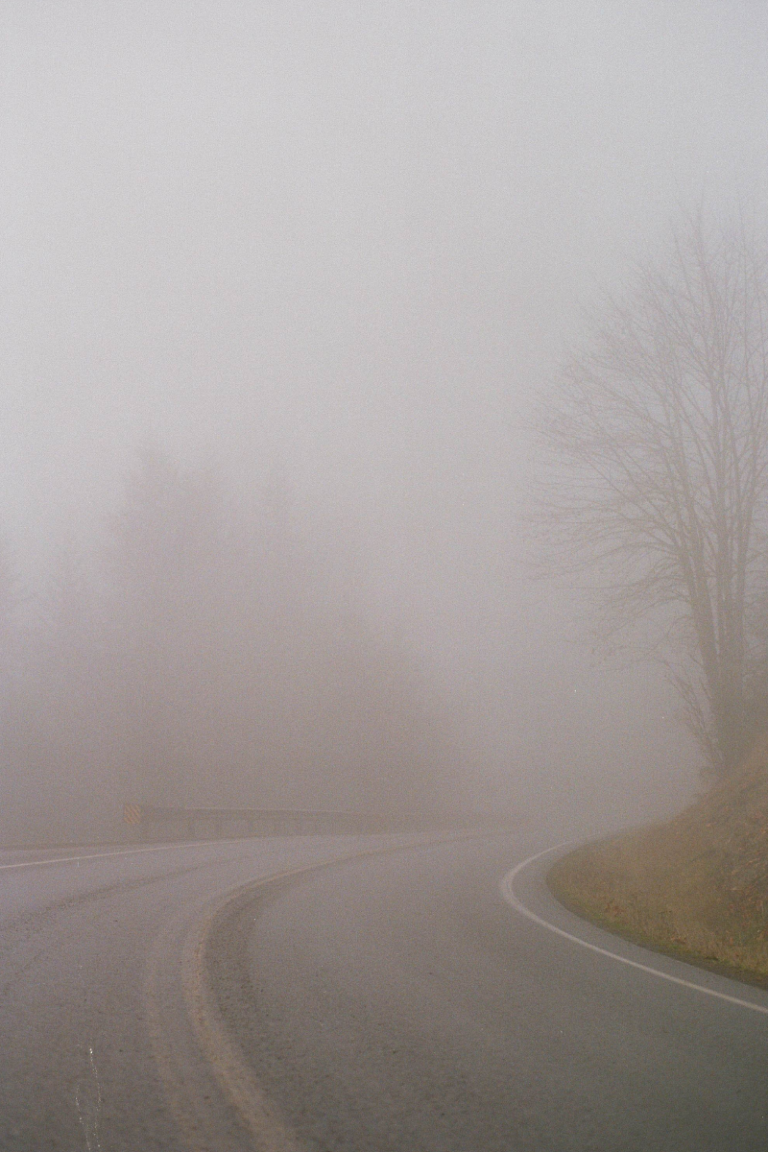
Image by Annisa Hale/ Film processed by Moody's Film Lab, © All Rights Reserved.
Guest
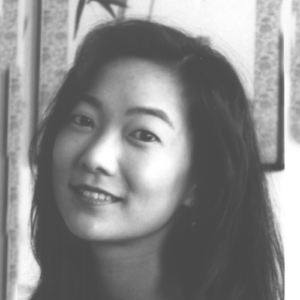
Suji Kwock Kim is a poet and playwright. Her debut poetry collection, Notes from the Divided Country (Louisiana State University Press, 2003), was the recipient of the 2002 Walt Whitman Award from the Academy of American Poets and was also shortlisted for the 2004 Griffin Poetry Prize. Her most recent collection is Notes from the North (The Poetry Business, 2022). Image by Jill D’Alessandro.
Transcript
Transcription by Alletta Cooper
Pádraig Ó Tuama: My name is Pádraig Ó Tuama, and sometimes you might find a line from a poem or piece of prose or something that you see written somewhere in a newspaper, and that line strikes you in such a way that it creates an entire world in your imagination. Loads of poems have an opening epigraph, and I often think that when somebody opens a poem with a quote from someone else — wherever that’s from another poet or a film or piece of prose — that what they’re doing is saying that somehow this line opened up a portal that allowed this poem to come through.
[music: “Praise the Rain” by Gautam Srikishan]
“Search Engine: Notes from the North Korean-Chinese-Russian Border” by Suji Kwock Kim
This poem has an epigraph from Durs Grünbein, “By which a strip of land became a hole in time.”
“Grandfather I cannot find,
flesh of my flesh, bone of my bone,
what country do you belong to:
“where is your body buried,
where did your soul go
when the road led nowhere?
“Grandfather I’ll never know,
the moment father last saw you
opens a wormhole
“that has no end: the hours
became years, the years
forever: and on the other side
“lies a memory of a memory
or a dream of a dream of a dream
of another life, where what happened
“never happened, what cannot come true
comes true: and neither erases
the other, or the other others,
“world after world, to infinity –
If only I could cross the border
and find you there,
“find you anywhere,
as if you could tell me who he is, or was,
or might have become:
“no bloodshot eyes, or broken
bottles, or praying with cracked lips
because the past is past and was is not is –
“Grandfather, stranger,
give me back my father –
or not back, not back, give me the father
“I might have had:
there, in the country that no longer exists,
on the other side of the war –”
[music: “Our Ears, Deceivers” by Blue Dot Sessions]
So this poem by Suji Kwock Kim is addressed to the grandfather: “Grandfather I cannot find,” “Grandfather I’ll never know,” “Grandfather, stranger.” These are three titles that are given to this grandfather. She’s appealing to him and, in a certain sense, is appealing to him to give her back someone else: her own father. In this way, there’s an appeal to someone who isn’t there; there’s an appeal to someone who she doesn’t know. “Grandfather I cannot find,” “I’ll never know” and “stranger.” These are unusual terms to give to a grandfather, but also, perhaps, not unusual. So many people could address their grandfather in the same way, for reasons, perhaps, maybe they’ve been separated by death or by a border or by war, as you hear in this poem.
Suji Kwock Kim’s parents and grandparents were all born in what is now called North Korea. And the villages where they were born are near the North Korean-Chinese-Russian border. And so it made it difficult for people in the family to escape during the war. Her father last saw his own father when he was 10 years old. And so this poem of appeal to a grandfather she’s never known really is an appeal to eldership. There is a prayer, a plea, a lament, too, saying, “Give me what might’ve been. Undo what has happened.” This poem is intelligent. It knows that such a request isn’t going to happen, but nonetheless, it knows that something might emerge.
While she’s uttering a poem in the place of this impossibility of knowing that you can’t get what it is that she’s asking to get. The poem’s title — the first part of the poem’s title — comes back, not the reference to the North Korean-Chinese-Russian border, but the first part of the title “Search Engine.” The poem is a search engine, an engine that might keep you alive, an engine that might find a way to bridge a gap that is unbridgeable.
[music: “Taoudella” by Blue Dot Sessions]
This poem from its title is linked to international borders: North Korea, China, Russia. Of course, then you think of internal borders, thinking of the border across the Korean peninsula. But also in the epigraph of the poem from Durs Grünbein. He’s a German poet who grew up in East Germany, and the epigraph from him is, “By which a strip of land becomes a hole in time.” He has a sequence of poems called “Border Dog” from which this quote comes. And so this is another where a poem about one particular family from this one particular place is also a poem about many families from so many other places, borders that have been put into place and taken away, and what it is that the politicization of a particular piece of land does to the experience of time, of people whose lives are caught up in what happens — whether in Germany, whether on the North Korea-Chinese-Russian border, whether internally within Korea. Wherever it is that these borders are put across, something happens to the experience of time. “Like a wormhole,” she says later on in the poem, echoing back, I think, to the epigraph “by which a strip of land became a hole in time.” Something you fall into, something where time’s seeming dependability becomes chaotic catastrophized, and where there are no bearings. Obviously, strange things happen anyway, but that strangeness can be amplified even further by the ways within which lives are turned into absolute chaos when borders are enforced.
[music: “Levander Crest” by Blue Dot Sessions]
By bringing time into talking about an experience of land where a border has been partitioned or militarized, I find myself thinking about war. And that’s the final line of the poem: “on the other side of the war –” There’s a hope in that, that there might be another side of a war. In a news cycle, today’s news becomes yesterday’s news, and that can be exhausting for people who have to live for generations with the impact of something that perhaps they feel like the rest of the world has forgotten or feels like, “Oh, that was ages ago. Are you still living with that?” And here, just hoping that that unknown grandfather — “Grandfather, stranger,” she calls him — could be some direction for a poem, a plea, a prayer, a yearning for a reconnection with the father. She is trying to connect with a father that was undone by the experience of being taken away from his own father when he was 10. That’s the hole in time. Something falls in but doesn’t know how to get out.
There’s a theory of trauma within this, and that goes far beyond individual experience. It is escalated and amplified as you think of the millions of people for whom the experience of war and border making and border enforcing is a daily reality, whether today or 30 years ago because people are still living with the effects of that. This stuff doesn’t go away quickly, and that’s one of the intelligences about time in this poem.
[music: “Creatures of Myth” by Gautam Srikishan]
Throughout this poem, Suji Kwock Kim makes use of language that echoes or mirrors itself. So both visually and sonically. You hear the way that this poem sounds like it’s more than just one person asking. In a way, this poem, particular to one family as it is, is also linked to many families. And you can hear this in lines like “flesh of my flesh, bone of my bone.” “The hours / become years, the years / forever.” But then particularly in the middle of the poem, it rises to something that sounds like song, “a memory of a memory / or a dream of a dream of a dream / of another life, where what happened // never happened, what cannot come true / comes true: and neither erases / the other, or the other others, // world after world, to infinity –” It’s like a litany. It’s spelling something out of impossibility. It’s saying that this is so huge that even repeated language that stretches out the experience of feeling lost in it, even that can’t contain the enormity of what’s un-reclaimable. So there’s irony in the sense of using beautiful melodic, echoing language to describe something that is unbridgeable, a chasm that cannot be crossed. And that is part of the crisis of the poem.
But also what’s so interesting is alongside the crisis of the poem there is the creation of a poem like some plaintive melody that takes pain and mixes pain with beautiful language, and in the context of that is a demonstration of a certain kind of artistic defiance, a certain demonstration of “here’s what I can still do, which is to shape language with my hands, with my tongue, which is in the place of knowing the impossibility of things I can ask the impossible because that says something to me of what it is that I wish to create.”
[music: “First Grief, First Air” by Gautam Srikishan]
“Search Engine: Notes from the North Korean-Chinese-Russian Border” by Suji Kwock Kim
This poem opens with an epigraph from Durs Grünbein, “By which a strip of land became a hole in time.”
“Grandfather I cannot find,
flesh of my flesh, bone of my bone,
what country do you belong to:
“where is your body buried,
where did your soul go
when the road led nowhere?
“Grandfather I’ll never know,
the moment father last saw you
opens a wormhole
“that has no end: the hours
became years, the years
forever: and on the other side
“lies a memory of a memory
or a dream of a dream of a dream
of another life, where what happened
“never happened, what cannot come true
comes true: and neither erases
the other, or the other others,
“world after world, to infinity –
If only I could cross the border
and find you there,
“find you anywhere,
as if you could tell me who he is, or was,
or might have become:
“no bloodshot eyes, or broken
bottles, or praying with cracked lips
because the past is past and was is not is –
“Grandfather, stranger,
give me back my father –
or not back, not back, give me the father
“I might have had:
there, in the country that no longer exists,
on the other side of the war –”
[music: “Praise the Rain” by Gautam Srikishan]
Chris Heagle: “Search Engine: Notes from the North Korean-Chinese-Russian Border” comes from Suji Kwock Kim’s book Notes from the North. Thank you to Suji who gave us permission to use her poem. Read it on our website at onbeing.org.
[music: “Praise the Rain” by Gautam Srikishan]
Poetry Unbound is: Gautam Srikishan, Eddie Gonzalez, Lilian Vo, Lucas Johnson, Amy Chatelaine, Kayla Edwards, Annisa Hale, and me, Chris Heagle.
Our music is composed and provided by Gautam Srikishan and Blue Dot Sessions.
This podcast is produced by On Being Studios, which is located on Dakota land. Open your world to poetry with us by subscribing to our Substack newsletter. You may also enjoy Pádraig’s book, Poetry Unbound: Fifty Poems to Open Your World. For links and to find out more visit poetryunbound.org.
Books & Music
Recommended Reading
The On Being Project is an affiliate partner of Bookshop.org and Amazon.com. Any earnings we receive through these affiliate partnerships go into directly supporting The On Being Project.





